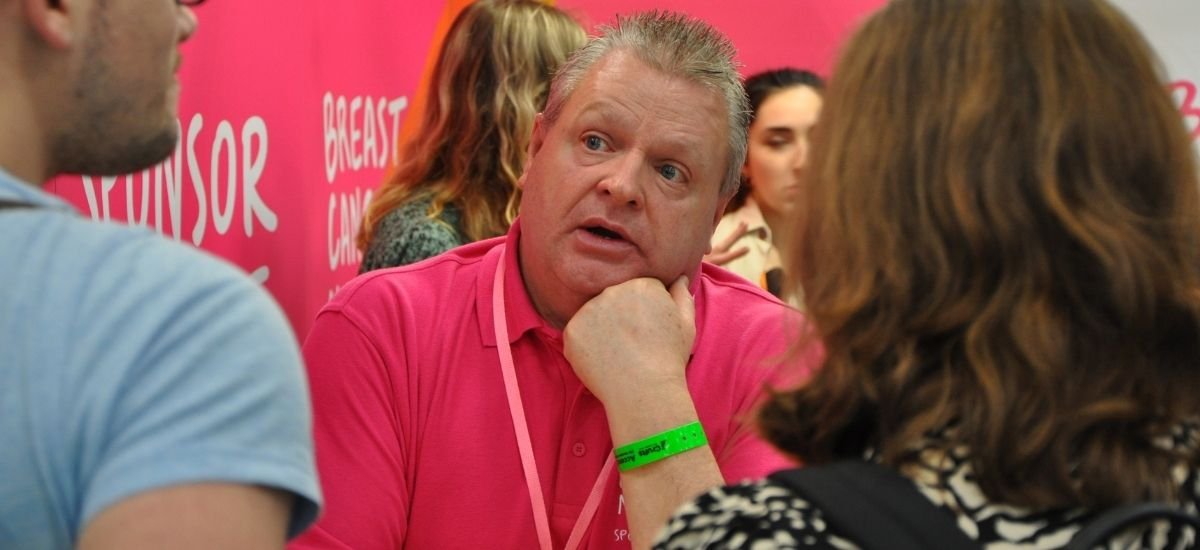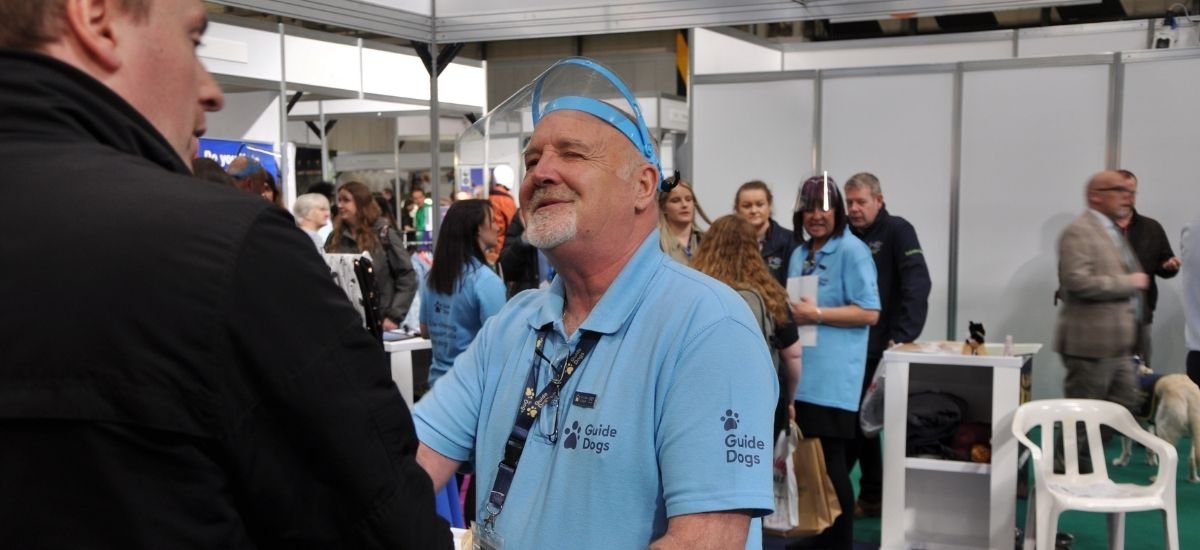Fundraiser training can skyrocket your donor potential
Can just anyone be a face to face fundraiser? After all, it’s only approaching people, sweet talking for a bit then ask for money right?
Don’t be fooled!
In today’s gnarly world of cash strapped post-Covid, post-Brexit, cost-of-living-crisis British public, fundraisers must become masters of adapting and resilience.
Proper professional fundraising requires a myriad of skills way beyond ‘just’ a natural flair for sales. Learning how to capture attention, tailor a pitch to each donor, remain endlessly positive and follow the (many) rules and regulations, needs excellent fundraising training. In fact, it needs skyrocket training.
But what does fundraiser training entail… and does it work for everyone?
The difference between fundraising and selling
It seems apt to begin by establishing the difference between fundraising and sales, since so many assume they’re one and the same thing.
But as we’ve seen here at Charity Link; a salesperson certainly doesn’t always make for a good fundraiser (and fundraisers aren’t always great at sales either for that matter).
For those willing to take a moment to compare face to face fundraiser jobs to ‘regular’ sales, they’re likely to conclude that they’re very different beasts indeed.
There’s no doubt that sales and fundraising require a few similar traits: Confidence of course and a good mastery of communication.
But if we shared that when we recruit fundraisers, we seek qualities like friendliness, clarity, honesty, transparency, enthusiasm, compassion, interested, engaging, compliance, professional, informed, agreeable, optimistic, open, self-aware, resilient, willing to learn…
… Then you might start to spot the difference.
Typically, a good salesperson might approach potential customers with the intention of helping them solve a problem (rather than pushing a product of service).
But, what problem does a potential donor have that a fundraiser can solve?
None that are enticing enough to gain a regular donation for months to come.
The stomping grounds of the fundraiser aren’t exactly the places you’re likely to see sales people either.
A salesperson rarely knocks on doors to homes these days, nor do they hang around on high streets attempting to make conversation with total strangers, without even the sniff of a lead.
One of the key differences between a salesperson and a 2022 fundraiser role is that fundraising revolves around compliance. And heart.
A fundraiser isn’t selling a product or a service. They’re selling a feeling.
The fundraiser job description reads something along the lines of:
“Your role will involve fundraising on behalf of some of the UKs most well-known charities, making a positive difference to both them and their beneficiaries.
You’ll visit potential donors at their homes, or reach them at venues and events.
We’re looking for people with a positive attitude, great personality and strong work ethic.
Good communication skills are essential, with a willingness to talk to anyone and everyone. We seek open mindedness for learning new ways of working.
Compassion for our charities and a desire to make a difference helps, as does experience in a customer facing role.”
So how does a fundraiser overcome the challenge of connecting to a complete stranger without a hook, or a list of benefits?
And how on earth do they get to the point they can ask for money?
Enter fundraiser training.
In the past, fundraiser companies would have taken the ‘throw them in the deep end’ approach.
A half day induction with a team manager would suffice, before new starters were sent out to knock on doors armed with little more than a badge, a pen and a clipboard.
Sometimes, new fundraisers would be paired up with the more experienced ones with the aim of picking up fundraiser tips and tricks…. But that meant bad habits and non-compliant behaviours got passed on too.
Occasionally, you might see charity fundraising courses which can be completed online in your own time by answering a series of questions. It isn’t hard to see why this doesn’t work so well.
Then of course you have The Chartered Institute of fundraising courses which are to cater for those going into professional fundraising such as corporate, legacy, fundraising event management and so forth.
You can find out a bit more about the different types of fundraising here
But there has definitely been a bit of a gap in the face to face edition of sales training for fundraisers for nonprofits. So it’s great that things have moved on with courses in fundraising - at least they have at Charity Link.
Charity fundraising training isn’t just about keeping up with the rising demands of the fundraising regulator, or even the growing needs of charities themselves.
It’s also to cater for a wiser, savvier (and more skeptical) general public.
They know their rights and they know how to complain when things aren’t satisfactory. Expectations have never been higher.
The fundraiser journey
The fundamentals of the role of fundraiser are covered in the recruitment process and successful candidates are scheduled in for our award winning academy training.
New fundraisers might be from any number of different backgrounds. Some turn up with not a stitch of relevant experience. Others might have been in sales for decades. All must learn from scratch.
During our quality fundraising courses, attendance is a hybrid blend of online interactive zoom calls and e-learning. Since Covid, we’ve proved time and again that fundraising courses online work just as well - if not better than our previous in-person requirement at our head office.
It turns out, when people can learn from the comfort of their own homes, they are more relaxed but are just as engaged. Bingo.
After several days of intensive group training and a final assessment, the fledgling fundraiser ventures out under the watchful eye of a dedicated regional trainer. New fundraiser will continue to be nurtured and coached until they’ve passed the entire Academy process of 12 weeks and are fully ready to go it alone.
After their graduation, Charity Link fundraisers report directly to their team manager who’s there to deliver support, suggestions to improve and motivation in the form of incentives and rewards.
With a professional fundraising company like Charity Link, our fundraisers always have our caring HR team on hand to discuss any problems and find solutions. Throughout their career, our fundraisers are given opportunities to grow, earn and improve, keeping the job fresh and motivation high.
The framework of fundraising
Most of those at the beginning of their fundraising journey expect training to cover the usual’s of uniform and how to operate their tablet for a speedy transaction.
But the real nitty gritty of how to be a fundraiser is found within the fundraiser training framework.
This framework is essentially our formula upon which every good fundraiser refers back to time and again.
Success in fundraising isn’t about how many details about the charity can be regurgitated, or being pushier, or even smiling more.
To do well and to truly improve is to revisit the fundraiser framework and measure personal performance against each element.
We find that assessment in this way is ultimately what helps our fundraisers to find their weak spots and make specific, targeted tweaks.
The basic framework of Charity Link fundraiser training is dismantled into 9 parts. These are:
Preparation
Positive attitude & mind-set
Behaviour
Building rapport
The fundraising sales pitch
The ask
Objection handling
Signing up & tablet
Consolidation
Preparation
Like with any job you need to consider your tools and with a fundraiser job it’s no different.
Ahead of venturing out on the ‘field’ the fundraiser needs to make sure they’ve got everything they need. That means their ID badge is on display, their tablet and spare battery are charged and uniform is on.
The more experienced fundraiser will be considering weather reports, where they’ll park and will be strategizing which hours are the best for footfall, or when people are home if they’re door to door fundraisers.
Positive mind-set & attitude
Having a positive mind-set doesn’t just mean smiling till your jaw aches!
It means approaching the whole job with an open mind and being prepared for it to be a working progress as you get better.
Acknowledging that you’re going to be told no (a lot), but not allowing it to affect you personally is essential.
Staying motivated to see each donor as a brand new opportunity -regardless of what’s happened with the previous ones.
Regardless of footfall or time of year, the talented fundraiser will look to maximise every opportunity and potential.
The experienced fundraiser believes that with perseverance and continued optimism they will get that desired result.
Behaviour
Behaviour encompasses everything you’re doing and saying during the time that you’re fundraising.
An important part of being resilient and staying on top of behaviours at fundraising means to learn your own triggers. That means knowing when to take a break. This is far better than trying to push through when you’re feeling negative and frustrated.
Whether communicating back to your team or being open to continually improving, keeping behaviour under control also ensures following fundraiser regulatory guidelines.
Fundraiser Regulatory
As we’ve identified, fundraising differs from sales because of it’s rules and ethical requirements.
Meeting fundraiser regulatory criteria is an essential part of the job.
The fundraising regulator code of practice is there to align compliance for everyone. It basically sets the standards which all fundraisers, charities and third party fundraisers must meet.
The fundraising code of practice stipulates that fundraisers must monitor their own behaviour whilst fundraising and
Be legal, honest, open, polite and respectful
Refrain from criticising others (people or organisations)
Not encourage donors to replace existing donations for your own
No intrude on a person’s privacy or be unreasonably persistent or pressurising
Leave well alone if a person indicates they do not wish to speak with you
Never mislead people either verbally or with materials
·Be ambiguous or exaggerate details
Meet equality law in England, Wales, Scotland and Northern Ireland
Take all reasonable steps to treat donors fairly so they may make an informed decision
Take into account whether someone may be vulnerable or need extra care
Never exploit trust or lack of knowledge
Not take a donation if you believe a person lacks capacity to decide to donate
Building rapport
Fundamentally building a good rapport means exchanging good vibes in your communication with someone. Great fundraisers are as good at listening as well as talking. Smiles (and maybe even some laughter), direct eye contact and open body language are good signs that there’s an emotional connection.
Gaining likability and trust means you can learn enough about a person to tailor your pitch to them personally. You might have already worked out the triggers for a yes when you ask for that donation.
The fundraisers pitch
To pitch well, the fundraiser needs to have done their homework and know how to deliver the key messages of their charity well.
Knowing your subject will gain respect and trust. When you’re able to converse honestly, without the need to exaggerate or use wishy washy ‘facts’, the donor receives the correct information in an ethical way.
Fundraising training should always cover the elemental parts of the charity and select information shared should be succinct. It’s not about bombarding your counterpart with every fact and figure you’ve learned. It’s about carefully choosing which facts will have the most impact in that instance.
The more efficient fundraiser will be able to smoothly transition from their opening rapport building, into a well paced, compliant story telling, that avoids wasting precious energy and time.
The ask
This is often the toughest part of the fundraiser interaction for most.
During fundraising training you’ll learn when the best moment is to talk money. Learning about using positive body language and when to soften the ask with gently persuasive language is also covered.
The more advanced fundraiser will also be able to ask earlier when appropriate, saving time and energy and maximising their potential.
Objection handling
Any sales exchange is likely to come with a little resistance. After all they say the only reasons people buy voluntarily is when they either need something or want something. Sadly donating to charity comes under neither.
Objections are usually repetitive and over time fundraisers learn to spot and handle objections well. There should be a positive response in every circumstance with a view to ‘removing barriers’ rather than breaking the rapport.
In training, fundraisers can learn how to adapt their pitch and reduce objections through clever questioning earlier on.
Read more about objection handling in charity fundraising here
Signing up & tablet
Once the fundraiser has received the ‘yes’ they’re after, it’s important to remember it’s not done just yet! Being slick and capable with the tablet ensures that the sign up is as smooth and quick as possible.
Re-checking that the donor has understood and is happy to go ahead, as well as signposting where to add details and involving the donor at each stage all helps the process go well.
Keeping things positive and merging into the consolidation is all a part of the sign up.
Consolidation
On completion, the donor should feel confident and happy about their decision.
During training, the fundraiser will learn to include any last details about direct debits or follow up emails and to be sure to personally thank the donor for their time and action. The donor should be asked if they have any further questions and the fundraiser should compliment the donor on their good doing, reminding them about the impact their donation will have.
Leaving things on a positive note, the fundraiser should part company with positivity and smiles.
What happens after fundraiser training?
Fundraisers are continually assessed and encouraged to grow through our key stages of growth:
Fundamental
Developing
Consistent
Expert
Charity Link is an industry leader in providing high grade training to all field sales. We educate and raise awareness for our charities whilst maintaining standards of integrity, compliance and professionalism. We follow the fundraising regulator standard and have an excellent track record for our mystery shop experiences.
Our passion is reflected in our fundraiser training academy, which has exemplary results in securing thousands of long term donors.
We understand the value of long term committed donors and we ensure fundraisers are genuinely engaged with the process and can find reward in supporting such excellent causes. When surveyed to describe which words our fundraisers most related to at work, ‘rewarding’ was the most popular.
If you’re interested in a career in fundraising, or you’re a charity interested in the huge benefits of recruiting a professional fundraiser company, we encourage you to get in touch.
We are immensely proud of our track record thus far and look forward to continuing to grow as one of the UKs largest fundraising agencies.









